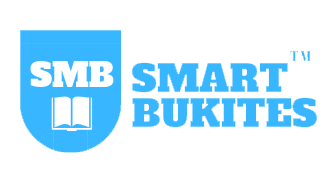
Preparing for exams can be overwhelming and energy-draining. When it’s ‘Exam Time’, the mere thought of having to cover the entire course outline of all the courses makes you feel scared, right?
We know it’s quite challenging to write and pass exams successfully. However, Smartbukites is here to give you the best tips to prepare for your exams and pass them with flying colours! Read to the end to increase your chances of passing your exams by 80%!
What is an ‘Examination’ and what is its purpose in a School Setting?
An examination is a standardized tool for testing the knowledge of students or how well they grasp a particular course. It’s every student’s dream to study and pass exams with flying colours, as that is an indication of the student’s qualification.
An Exam is a formal written, spoken or practical test, especially at school or college, to see how much you know about a subject, or what you can do.
Oxford Advanced Learners Dictionary
Most programs in higher institutions of learning (in Nigeria and over the world), assess the student’s academic performance every semester using either written or oral forms of examination or both in some cases.
Check out: 6 reasons why exams are important
The Relationship between Semester Examinations and CGPA
The Cumulative Grade Point Average (CGPA) is a measure of students’ performance in the university and it is one of the outputs of examinations. After each semester, each student’s results are calculated based on the institution’s grading system. For every semester, a Grade Point Average (GPA) is calculated. The CGPA however is computed using both the current semester’s results and results from the previous semester’s (if any).
A high CGPA indicates wonderful performance while a low CGPA implies poor performance. Meanwhile, different institutions have different grading systems and CGPA scales. In Nigeria, the most common scale used is 0 – 5.
Is Passing Examinations Necessary for Maintaining a Good CGPA?
Did you know that passing examinations and thereby maintaining a good CGPA is often intentional and planned? This article intends to reveal insights into writing your examinations successfully.
Learn how to calculate your GPA and CGPA. Note that your CGPA determines your degree class (first class, second class upper, etc.)!
Which Exam Are You Preparing For?
Different exams usually require different strategies. Therefore, knowing the kind of exam you’re preparing for helps gear you towards success in it. This involves knowing the nature of the exam (CBT, pen-and-paper or oral), course difficulty, past questions, etc. With a deliberate plan before the exams, you can get a clear pass on all subjects or courses!
Note that every student is unique and may have different studying patterns, assimilation and knowledge retention abilities. The first step is to plan and understand how individual system/pattern works. Ultimately, you should know your potential and use these top tips for studying right according to your personality.
PREPARING TO PASS EXAMINATIONS

A popular adage says, “Nobody prepares to fail, but many people fail to prepare.” Sadly, people generally make empty promises and engage in wishful thinking and procrastination. Over time, they become sad and envious of brilliant and popular students. But maybe what prevented their own success was not engaging in detailed planning, hard work, and smart execution!
As a student, it is very important that you understand your personality and potential. You can then put that into consideration when designing your study plans. Note that Group reading or studying is encouraged but one should be equipped with the right knowledge and retention abilities.
Preparation 101
- Summarize your notes in your words and understanding.
- Review notes and ensure clarity of concepts in each particular subject or course. (All Examples, Assignments and Quizzes solved in the class as well as Test and Practice Questions).
- Study the majority of the topics in the course and review topics covered in class. For topics not covered, students are encouraged to read up before the commencement of exams. (Proactive reading)
- Attend Group discussions.
- Take exercises to treat previous Test and Exam questions.
Preparation 102
- Obtain a copy of the examination Timetable (Be careful with the time and venue), check it regularly or paste it in your room, and ensure to check the notice board or online class discussion groups regularly in case of possible changes.
- Always be with your school Identity Card. In some instances, students without IDs are not allowed into examinations halls.
Preparation 103
- Do not take any form of material or prohibited items (books, jotting notes, notes, textbooks, or cell phones) to the examination hall. Non-smart wristwatches are allowed and wearing them is encouraged for time-management whilst answering the exams question.
- Avoid excessive late-night reading, known as TDB (Till Day Break). Students who practice TDB study for a stretch of night hours without rest or sleep. This is not only harmful but unhealthy to students and in most cases, students experience discomfort, sleepiness and inability to concentrate during exams.
- Ensure you design a reading timetable to complement the examination schedule and dates.
AT THE EXAMINATION HALL

Examination 101
- Take only the required items (Biro, Calculator, Pencil, Ruler, Cleaner, sharpener) with you to the examination hall as some invigilators don’t allow borrowing.
- Inspect yourself thoroughly for prohibited materials or items which may be in your possession mistakenly or due to carelessness, e.g. Paper/ jotting material in your pocket.
- Find a convenient seat and check its surroundings for any incriminating material (under the table or on the floor).
- Fill your booklet correctly with personal details (Matriculation/registration number, department, faculty, course title and code, etc.)
- Ensure all pages in the Booklet are stapled together; check thoroughly in case of missing pages which might implicate you.

Examination 102
- Read instructions on the question paper; take note of compulsory and optional questions.
Imagine if the examiner instructs: “Do not answer any question; just write your Name and Registration Number” but because you didn’t read the instructions, you just answered all the questions correctly...
Omo, you go fail o!
- Start with the easiest questions, especially if they attract many marks.
- Don’t waste time struggling with difficult questions. Instead, skip them and return to them after solving easier ones.
- Remain calm and approach each question with a clear mental plan.
- For an essay section, especially when faced with tricky or applied questions, read through with a clear mind (noting the questions you can attempt). You don’t want to start answering a question only to realize that you can’t answer it or that you could answer another one in a better way. What if there isn’t enough time to cancel the first one and switch to another?
For situations where you’ve answered several questions and among the remaining, you’ve not answered, you know (a) and (b) in one, and can’t answer (c) and (d), while in the other you can’t answer (a) and (b) but you can answer (c) alone, Don’t just go for the one that has more options you can answer; be smart and calculate the marks obtainable for each, then go for the question where you can get more marks.
Examination 103
- If you notice a typographical error or something that is not so clear on the question paper, draw the attention of the invigilator or examiner if they’re available. Do not answer a question you are not sure about.
- Review your answers after finishing and edit possible grammatical or technical errors.
- Make sure you submit your answer booklet yourself and sign out before leaving the exam hall.
- Pay attention and check your hands, because, in case of exam pressure, some people tend to submit part of the answer booklet and go with the extra sheet, or submit the extra sheet and go with the main answer booklet. Some even submit their question papers and go with the answer booklet. NOTE: That may not just lead to a Carryover for you, but it may even get you expelled from the school!
- Do not engage in any form of examination malpractice
AFTER THE EXAMINATION
The aftermath of examinations is not usually funny, especially when you’re anticipating results. You may be anxiously wondering whether you have passed or failed a course, but know that semester results are important, but they don’t define who you are!
Below are some post-exam tips for you
- Avoid gathering where exam questions are being discussed after exams, where you may hear “What did you write for No.1? Ahhh… that’s not the answer!” Such discussions are mostly misleading and may change your mood, thereby affecting your performance in subsequent examinations.
- Eat, rest properly, drink enough water and prepare for the next paper(s).
- Pray and await success.
- Keep in mind that the Smartbukites team always wishes you success! Keep checking our webpage and social media handles for inspiring articles, academic tutorials, career development tips and studying resources.
You Might Want to Read
- How to Experience A Juicy Semester in Bayero University Kano (BUK)
- How to Prepare For Examination and Become Successful
- Grading System of Bayero University Kano (BUK)
Post-Authors:
Mustapha Tijjani Musa (BUK), Muhammad Abdullahi Musa (BUK), Ayodele Oladipo (UNILAG)
Edited by Fatima G. Yusuf (BUK)
